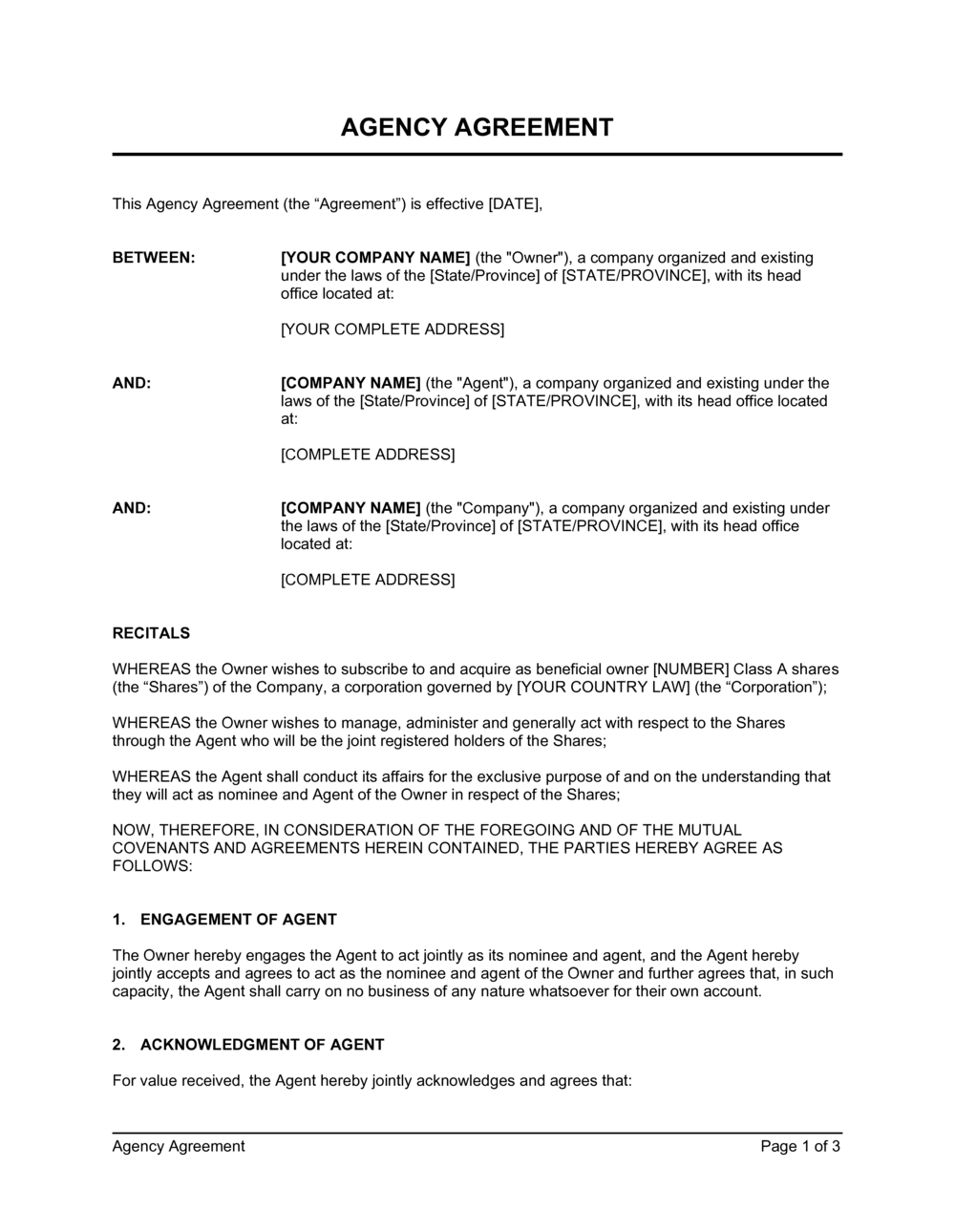Description
Corporate agreements are legally binding documents that establish the terms, conditions, rights, and obligations governing business relationships or transactions within a corporate setting. These agreements play a pivotal role in defining the parameters of engagement, safeguarding interests, and ensuring clarity and accountability among parties involved.
Key Components of Corporate Agreements:
– Parties Involved: Identification of entities or individuals entering the agreement and their roles, responsibilities, and legal capacity.
– Purpose and Scope: Clear outline of objectives and scope, including the nature of the relationship or transaction established.
– Terms and Conditions: Specification of engagement terms, including timelines, deliverables, payment terms, warranties, and other provisions.
– Consideration: Definition of compensation, goods, services, or other benefits exchanged between parties.
– Intellectual Property Rights: Addressing ownership, licensing, and usage rights of intellectual property created, utilized, or transferred during the agreement.
– Confidentiality and Non-Disclosure: Establishment of obligations and protocols for protecting confidential information shared during the agreement.
– Indemnification and Liability: Clarification of responsibilities for indemnifying against losses, damages, or liabilities arising from the agreement.
– Dispute Resolution: Specification of mechanisms and procedures for resolving disputes, including negotiation, mediation, arbitration, or litigation.
Types of Corporate Agreements:
– Partnership Agreements: Collaborative contracts between entities forming partnerships or joint ventures.
– Supplier Contracts: Agreements with suppliers or vendors for procurement of goods, materials, or services.
– Client Contracts: Agreements with clients or customers for provision of products, services, or expertise.
– Employment Contracts: Agreements between employers and employees outlining terms of employment.
– Licensing Agreements: Contracts granting or obtaining licenses for use, distribution, or sale of intellectual property or products.
– Mergers and Acquisitions Agreements: Contracts governing terms of mergers, acquisitions, or divestitures between corporate entities.
Drafting, negotiating, and executing corporate agreements require meticulous attention to legal, financial, and operational considerations to protect the interests of all parties involved. It is essential to ensure clarity, enforceability, and compliance with relevant laws, regulations, and industry standards. Regular review and updates are necessary to adapt to evolving business conditions, mitigate risks, and align with organizational objectives.









Reviews
There are no reviews yet.